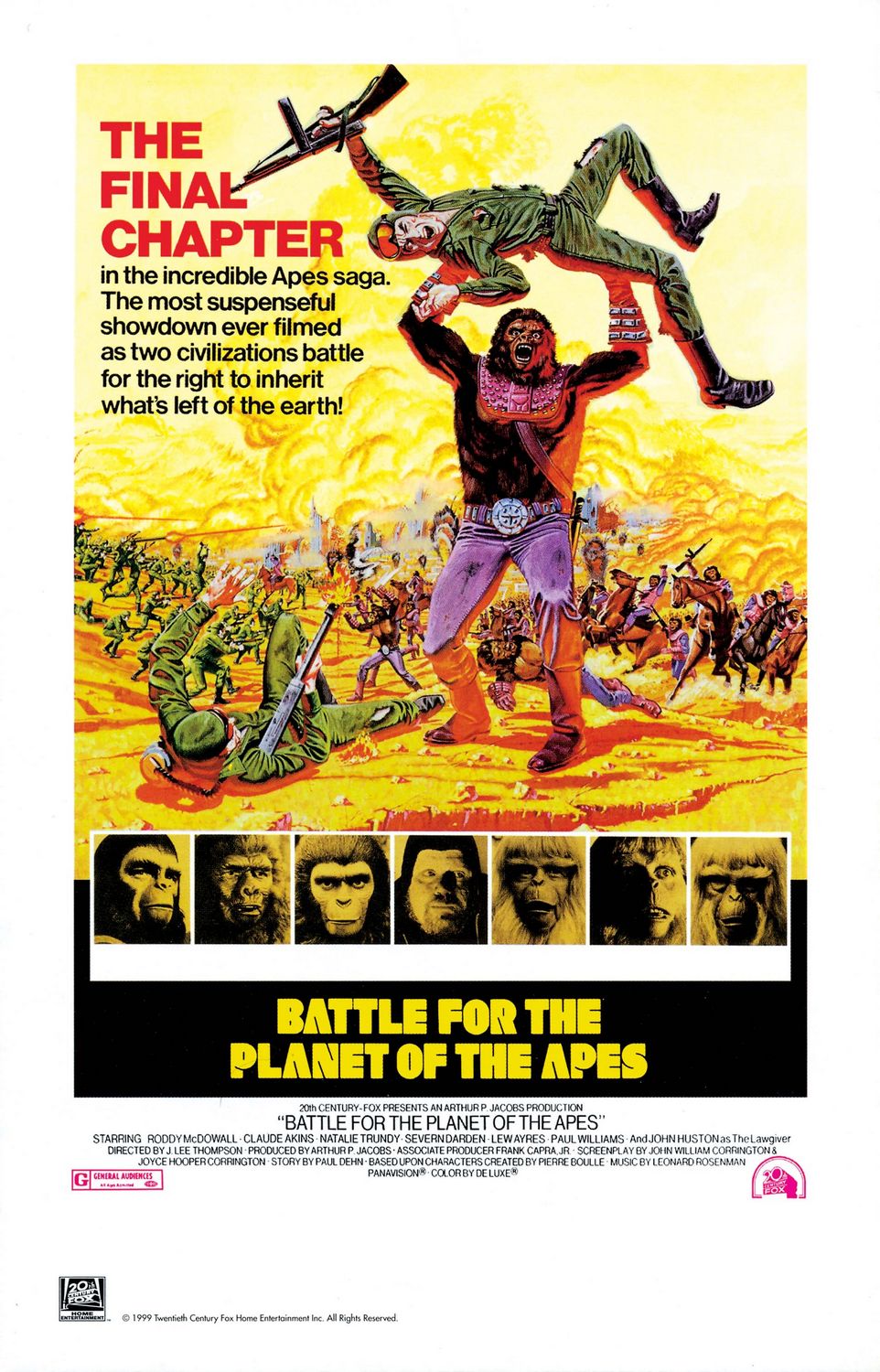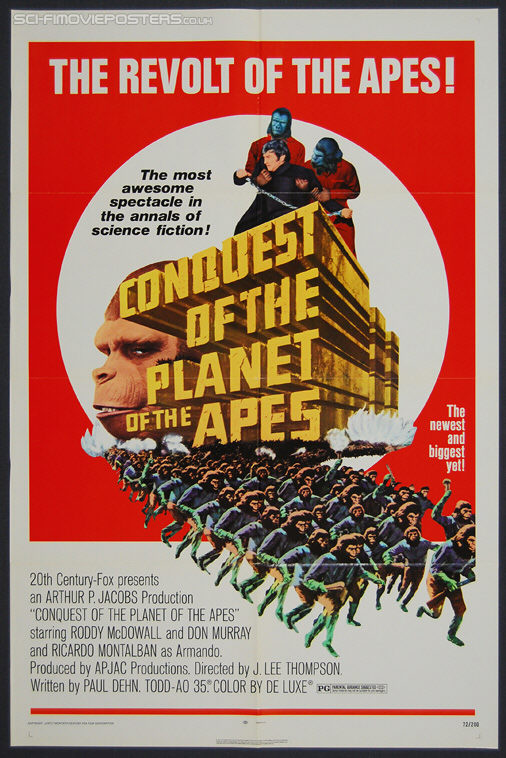Three years after the first in the reboot series of this well-known sci-fi franchise, director Matt Reeves enters into this picture with taking the sequel up a notch that capitalizes on the first movie’s potential.
After getting through the opening credits where you see America basically affected after the virus that spread near the end of the previous movie, we see Caesar, reprised by Andy Serkis, and his ape clan that have made a peaceful community in the woods outside the city of San Francisco. The only ape that is a rebel in the clan is Koba, played by Toby Kebbell, a scarred ape who was tortured by humans, making him hate them, and is constantly questioning Caesar’s decisions as the leader, which is definitely seen when humans step into the woods and shoot one of the apes. Caesar could have easily killed that human, but does his best to keep peace and lets the humans that he still doesn’t trust to work on repairing a dam to generate power for their home.
At first, the human characters, played by Jason Clarke, Gary Oldman, Kodi Smit-McPhee, Keri Russell and Kirk Acevedo, don’t really do much, since some of them feel like stereotypes. When the film switches over to the human camp, it’s hard to get interested, although a few of the humans, particularly Clarke and Russell’s, you do start to like since they are the ones that Caesar starts to trust more as they help him and his family.
It’s very clear since the start of the movie that the apes are the main stars since the humans mostly act like the antagonists, especially Oldman, and it’s very hard to decide which side you are on. Caesar’s lieutenant Koba acts like the instigator for war as he breaks into the human’s armory and sees a wide range of guns and other weapons they have in their base, since the weapons the apes use are no match for guns.
Serkis and the performance capture cast give the viewers a lot of depth and emotion in the scenes between the apes and humans that you don’t even notice or forget that the apes are actually humans doing performance capture. Edward Douglas stated in his review, “When Judy Greer and Toby Kebbell's names were listed in the end credits, I couldn't even recall where they appeared in the movie until I looked up the credits afterwards.”
What’s nice about this movie is that even though we see hints of the future that was portrayed in the original 1968 movie, (humans being caged) the sequel doesn’t really hit the viewers with references to the original movie like “Rise of the Planet of the Apes” sometimes did.
The CG is absolutely amazing, the highlight of the film since there are scenes that are shot almost completely in CG FX, like the part where the apes are hunting down the deer so the clan can eat, but it looks so real to the human eye that you wouldn’t know if this was CG or not. The production design of the different environments is magnificent, which is what also separates the sequel from the original, which was less fantastical. Douglas commented that, “It's fairly clear Matt Reeves has upped his game since "Cloverfield," though he's working with a much better concept, script and cast.”
The film has a number of great moments including an all-out war sequence, but unlike the previous movie, it doesn’t leave you on a cliffhanger for another movie even though we already know that a third film is already in production. Let’s just hope this is going to be another trilogy that is one of those rare ones which are either the films getting better and better or are all just as good, like “The Lord of the Rings” trilogy or the original “Star Wars” trilogy. Douglas made a remark in his review when he said, “We predict the third movie will either revive the title "Battle for the Planet of the Apes" or go with "War of the Planet of the Apes," because that's really the only way the story can go from here.”
Douglas ended his review with this verdict, “A brilliantly-realized successor to a solid franchise reboot, "Dawn of the Planet of the Apes" shows what can be done when a talented director with a strong script and cast creates a summer blockbuster that doesn't feel the need to dumb itself down in order to succeed.” I personally think this film is better than “Rise of the Planet of the Apes” since it up the stakes, furthers Caesar as a character, and I like how almost everyone is trying to work together in order to maintain peace. The only question that might be rising in everyone’s head is, “Will this come full circle to the original 1968 film or will be a change of events and end like how “Battle of the Planet of the Apes” did?” The only way to find out is to wait until the third film comes out in 2016 and the questions might be answered there.
In the meantime, I highly recommend everyone to go to the theater and check this film out, especially if you liked the last one. You will love this one as well, I promise you. All of the praises this film is getting is no joke.
Well, thank you for joining in with all “Planet of the Apes” reviews and my other reviews this month, stay tuned next month to see what I will review. Take care.










